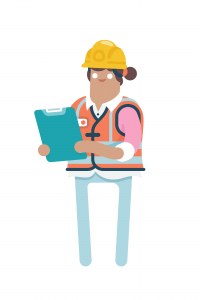
If you have read our article on the importance of work experience and internships, you are probably keen to get going! There are plenty of ways to explore careers in fields that interest you and start building valuable business skills, and it’s never too early to make a start. Here are our suggestions on where to find work experience opportunities:
University careers service
If you are still at university (or have recently graduated), your careers service can be a useful starting point, particularly if you are wanting a work placement related to your degree, or a route into a local employer where they may have contacts.
Company websites
Make a list of your target companies and check their websites and social media channels for advertised internships or work experience programmes. You might be able to apply online or find contact details for whoever arranges placements. Even if they don’t advertise opportunities, it is well worth taking the initiative and picking up the phone or firing off a speculative application.
If you are unable to secure an internship with your first-choice employer, try to find a placement with another in the same sector. Smaller companies may provide hands-on training, greater responsibility and exposure to more areas of the business, all of which would make you an attractive proposition for a larger employer, if that was your ultimate goal.
Apply on spec

A direct approach will often prove successful, particularly with smaller companies that don’t have big recruitment budgets. Speculative applications demonstrate that you are proactive and keen, which is always a good start!
Phone to enquire if they might take you on for some work experience, and ask who would be the right person to contact. Then email your cover letter and CV, or if they are local, deliver it in person and be sure to create a great impression!
Find out how to write a speculative cover letter.
As none of the companies I was interested in were advertising internships, I decided to find contact info for the company owners/directors and email them directly. I sent a cover letter and my CV. Persistence pays off in the end… I promise!
Abbi, graduate in English, now enjoying a PR internship
Networking
One of the best ways of finding work experience is to approach employers through people you know: family, parents’ friends, your friends, university staff etc.
Find out if anyone has suitable contacts in the industry, ask if you could come in for a few days’ work shadowing or if they offer placements you could apply for.
Leverage social media for professional networking (LinkedIn and Twitter). Follow employers that interest you, make connections, join groups and discussions.
Attend industry networking events and careers fairs; approach company representatives and ask how to apply for work experience.
Read more tips on effective networking.

‘I’ve started to contact people directly. A great way to do this is on LinkedIn. I’ve been advised to follow the companies I want to work for, read articles they publish and ask questions. Sometimes you can contact the author directly, or just comment on the article. This could be a potential way in. I guess it’s just about taking the initiative and making sure you are remembered.
Other than that, I have been meeting anyone and everyone I know who has experience in the industry. I arrange to meet for a coffee, chat about how I can get my career started, and just get general advice really. I’ve been pleasantly surprised how willing people are to help.’
Henry, a recent Leeds graduate trying to get into Asset Management
‘Since I was at school, I have loved the idea of becoming a detective. But the only knowledge I had of a career in the police is from crime dramas and documentaries! I thought I might be too small and not ‘tough’ enough to be a police officer. I decided to speak to a high-ranking female police officer, who seemed the perfect person to give me some advice. She suggested the best way to know if I could do the job would be to try it. So that’s what I did!’
Charli, Westminster graduate, freelance photographer & videographer
Charli did a couple of shifts with her local force, which turned out to be quite an eye-opener, but convinced her that it could be the right career path. Read her account here.
Jobs boards
Internships and placements are often advertised on jobs boards; our readers have recommended these sites as being particularly useful sources:
Graduate Jobs – Internships & work placements
Prospects – Work experience & internships
Includes apprenticeships, volunteering, student jobs & more
Rate My Placement
Internships & placements, plus thousands of reviews to help you decide
Inspiring Interns
Upload your CV & apply for up to 5 internships
Note some roles are ‘expenses only’
Student Job
Vacancies for students, graduates & young professionals, including part-time work, internships, placements & apprenticeships
Indeed
Includes work experience, internships & volunteering
Santander Internships with SMEs
Santander’s internship programme helps students & graduates from its partner universities, to gain paid work experience with an SME. If you are interested, please contact your university careers department
Freelancing

Freelancing can be a worthwhile option for many fields e.g. creatives, digital, languages, accounting, social media, tutoring. It is a relatively quick way to accumulate experience, prove your skills and expand your network, as well as giving you an insight into what types of organisations suit you best. Better still, the flexible hours mean you can fit work around job hunting. You might need to do your first few jobs for free or low pay until you notch up experience and good reviews, but you can start charging more once you build a reputation.
Here are some of the organisations that match freelancers with people who need work done:
Freelancer
Creative, technical, professional, translation
Upwork
Covers a wide variety of categories
People Per Hour
Creative & digital
Fiverr
Creative, digital, video & animation, music & audio, writing & translation, IT, business, lifestyle
Volunteering

Volunteering not only benefits others but is personally rewarding and highly valued by employers. It demonstrates positive characteristics like self-motivation, commitment and desire to make a difference. You will also develop valuable skills such as problem-solving, adaptability and teamwork.
If you’re keen, try to do a stint of volunteering related to your chosen career. Finding work shouldn’t be too difficult, because charities and volunteer organisations almost always need help.
Find out how to volunteer in your area
Venture abroad
How about combining travel with work experience? Time abroad will undoubtedly increase your confidence, develop cultural awareness and build transferrable skills such as communication, organisation and self-motivation.
Go it alone, or check out some of the many organisations who run internships or volunteering abroad programmes; but before you hop on the next flight, do proper research to make sure it is a reputable company.
Short and longer-term opportunities to work, volunteer or study abroad:
British Council
Involved in developing cultural relations & educational opportunities – study or work abroad
TEFL
Teaching English as a Foreign Language
Global Graduates
Opportunities & support for students & graduates who want to use their languages, work or study abroad
BUNAC
Working adventures worldwide
Your university
If you are a student, there will be plenty of opportunities on your doorstep: enquire about jobs in the students’ union, work on your university magazine or radio, get involved in organising charity events, apply for a brand ambassador role, or take a position of responsibility in a uni society or club.

Having some relevant work experience under your belt will undoubtedly help when you begin your graduate job search. So, if you’re still at university, make the most of the long holidays, get a head start and look for opportunities.
Whether you do a work placement as part of your degree, a summer internship, freelance projects or volunteering, the skills and experience you accumulate will help decide your career direction, improve your employability, provide useful contacts and could earn you some cash.
And it just might lead to your dream job…
Find out more about work experience & internships:
Why work experience is important
A key tool for securing a job, but find out why else it’s worth getting work experience…
How to plan work experience
Essential preparation, application tips & what to check before you start
Get the most out of work experience
Tips to make sure you gain valuable learning & impress your employers
